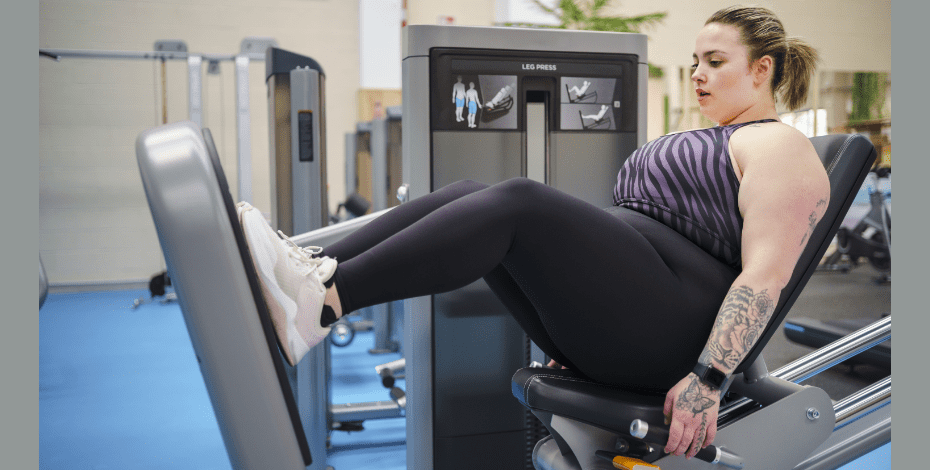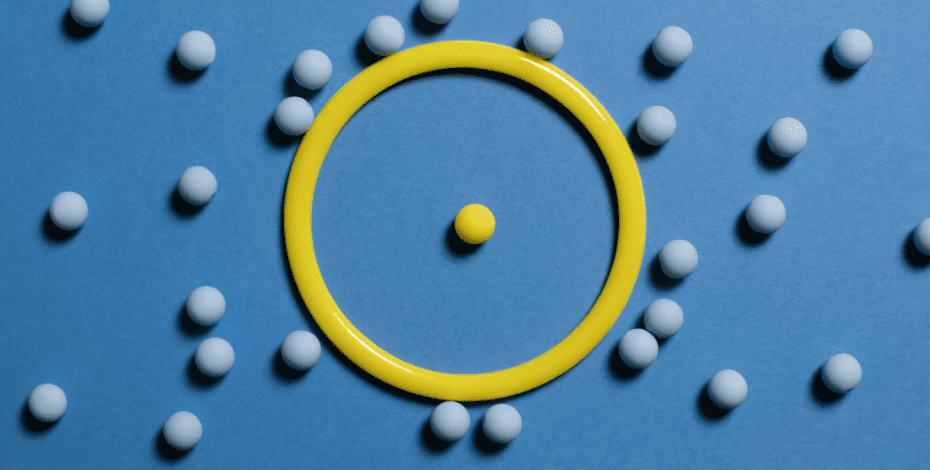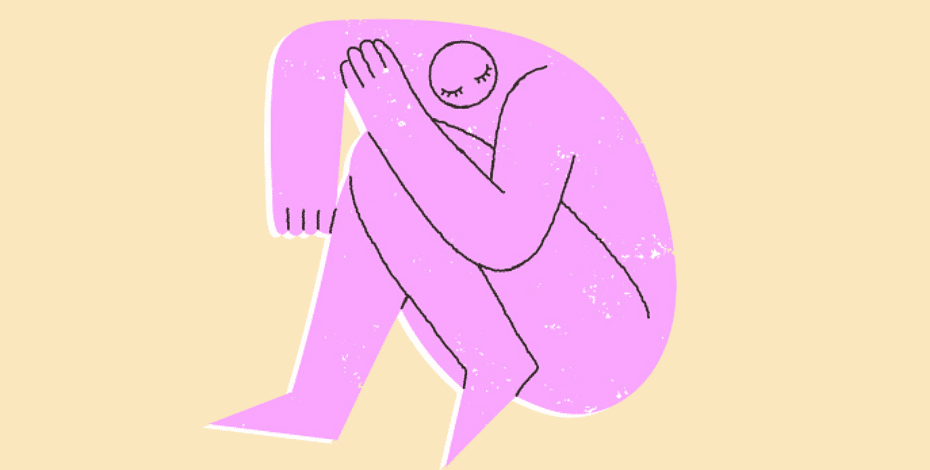
Let the Games begin: working in the Olympic arena

James Trotter and Ross Smith have both been named as head physiotherapist for an Australian Olympic Team but only one has officially served in that capacity … yet. And while they may have travelled different paths to get there, these two top-level physiotherapists share more in common than meets the eye.
When the Tokyo 2020 Olympic Games were officially postponed back in April, the impact was felt by two high-level physiotherapists in different ways.
For James Trotter, who had recently been named the Physical Therapy Lead for the Australian Olympic Team, it meant very suddenly having to put all his plans on hold.
For Ross Smith, a veteran of six Olympic Games, it meant considering the wider implications of the health of those who would have attended the Games and what it would mean for the athletes and their teams the world over.
Both James and Ross share a deep understanding of what it takes to become a leader in the Olympic medical support team and to deliver top-quality care to elite athletes across many sporting disciplines.
But while each experienced a different journey to reach the top, both have a vast pool of knowledge and experience to share with physiotherapists who aspire to be a part of the Australian Olympic contingency.
On the surface, the lives of these two physiotherapists share some interesting commonalities.
For one, both James and Ross were avid Australian Rules footballer players in their youth, both suffered debilitating on-field injuries and both had potential to become elite athletes themselves had they not heeded the calling to join the physiotherapy profession.
This, each of them say, has given them a greater understanding of treating the elite athlete, about the mechanisms of injury, about how devastating an injury can be and about the importance of being a part of an athlete’s collegiate medical support team.
James Trotter
Plans for James and his team of six physiotherapists heading to the Tokyo Olympics e already well advanced when the news came through that the 2020 Games had been postponed.
Well aware of the impact that COVID-19 was already having around the globe, James says an initial communique from the International Olympic Committee (IOC) in mid-March was that the Games would go ahead in July.
In the space of 10 days, news reports began to surface about whether the US intended to send a team to the Games due to health concerns—and three or four days later the IOC announced that the games would be postponed until 23 July–8 August 2021.
‘It all came to a head really, really quickly once we started with some of the very early restrictions in mid-March. By that time other countries had locked down, as well, so clearly it was going to be difficult for athletes from some countries to be able to compete and qualify,’ James says.
‘Had they cancelled the Games completely, a lot of people would have been very disappointed—including members of medical headquarters. On the Olympic side of things we’re just shifting the goal posts; we’re re-setting, we’re going full steam ahead, we’ve got a lot of things in place … so at the moment it’s just a bit of a wait and see.
'As far as the Games themselves go, we’ve just shifted the dates just like the IOC at the moment.’
In the weeks prior to the postponement, all the equipment the physiotherapy team would have needed in Tokyo was being finalised and was only a couple of weeks away from being loaded into a shipping container.
James was also in the process of allocating which physiotherapists were going to cover which sports, something that has since been put on hold to be revisited once the schedule for 2021 is released by the IOC.
James says there have been no indications that the make-up of the team appointed by the Australian Olympic Committee, to serve as sports and exercise physiotherapists at the Australian Team Headquarters for the Tokyo 2020 Olympics, would change given the new timeline.
That team is: APA Sports and Exercise Physiotherapist and APA Musculoskeletal Physiotherapist and Physical Therapy Lead James Trotter; APA Sports and Exercise Physiotherapist and Deputy Lead Melanie Omizzolo; APA Sports and Exercise Physiotherapist Kylie Holt; APA Sports and Exercise Physiotherapist Britt Caling; APA Sports and Exercise Physiotherapist and Fellow of the Australian College of Physiotherapists Andrew McGough; APA Sports and Exercise Physiotherapist Leon Vogels; and APA Sports and Exercise Physiotherapist Kate McGillivray.
For now James and the team will continue with their preparations. However, James is aware that the continuing threat of COVID-19 has impacted many athletes’ ability to travel to regional events that often serve as qualifiers for Olympic selection—Australian athletes included.
‘For a number of sports, Australia is part of the Asian zone and so we need to compete against Asian countries to see which country’s going to take the Asian zone spot, and I’m sure the Americans, Africans and Europeans are doing the same. The problem is, for some of those sports, and some of those qualification processes, that it has been shut down and there’s no confirmed date for qualification to go ahead.
‘I use the beach volleyball program as an example: we’ve got athletes who are training and preparing as if these things are going to go ahead, but they don’t have a date. They don’t have that end goal yet. So everybody—coaches, high-performance managers, athletes and us physios—we’re all ready to go but we just don’t know when these things are going to happen.’
James has served as the deputy lead role at the 2016 Rio de Janeiro Olympic Games and was part of the team at the London Games in 2012 and in Beijing in 2008.
James currently works with the National Beach Volleyball high performance program, and the canoe/kayak program at the South Australian Sports Institute. Prior to this, he worked with the national women’s water polo team and the national track and field team. James understands well what it takes for athletes to get to the top, to stay there and to keep their motivation levels high amid so much current uncertainty.
For those physiotherapists aspiring to work with elite-level athletes or one day join the team appointed to serve the Australian Olympic Team, James says it is important to focus on the athlete, no matter what level they compete at, deliver the best possible physiotherapy treatment to meet the athletes’ needs, to build your knowledge base and to learn to work well in a collaborative team environment.
‘When I was starting out in my career, one of the things I would have loved to have done was be appointed as a physio at the Olympics—being appointed to a fourth Olympics and being the lead was never really a goal for me, it was never really on the radar when I started out. For me, it’s about doing the absolute best job you can do with the athletes, communicating with the coaches and the high-performance managers and making sure that you’re doing everything you can to help the athletes get the best out of themselves within our role.
'I consider it an honour and a privilege to represent your country, and I am thrilled to follow in the footsteps of some of the amazing therapists that have represented our great country at the highest level.’
Ross Smith
Being selected to be a part of his first Australian Olympic Team for the Los Angeles Games in 1984 was a long-held dream for Ross, an APA Sports and Exercise Physiotherapist and APA Musculoskeletal Physiotherapist—one he had coveted since waking up early to watch the Australian athletes in action one very cold Melbourne morning during the 1976 Games in Montreal, Canada.
At the time, Ross was a young physiotherapist working rotations at the Alfred Hospital in Melbourne and an avid sports lover. He tells the story of an incident that changed the course of his career at a crucial time in his young life.
‘I had an interest in field hockey although I’d never played it, and the Australian men’s field hockey team were doing really well—they were playing New Zealand for the gold medal. Unfortunately, they didn’t win, they won the silver medal,’ Ross says.
‘But one of the Australian players was injured and a physiotherapist named David Zuker ran onto the field, and the commentator said “This is David Zuker, the physiotherapist for the Australian Olympic Team.” He was the only physiotherapist in that team, the first physio ever to be in an Olympic team, and I saw that, and I said to myself “I want to do that. That would be really cool. I want to do that”. And that was the start of my Olympic journey.’
How he had his first ‘break’ into joining the Olympic team is also quite a story; Ross was the physiotherapist for the Fitzroy Lions (now the Brisbane Lions) Australian Rules football team and he was also undertaking some locum work, having opened his private practice Ross B Smith & Associates Balaclava.
As a locum, one of Ross’s patients happened to be the vice captain of the Australian Men’s Hockey Team, Jim Irvine, who, while watching a broadcast of a football game on television, had, coincidently, seen Ross treating a player.
‘He turned around to me and said “You know, we need a physio when we travel. We go to really unusual places like Pakistan. I’m going to speak to the CEO of the Australian men’s hockey team, and would you be keen to come with us?”
'Long story short, I went on my first trip with the Australian Men’s Hockey Team to Lahore in Pakistan in 1978, and that enabled me to treat elite players, recognise the team dynamics, learn how to support them and how to stay at arm’s length, because you often had to make difficult decisions.
‘I went to Pakistan three times with the men’s hockey, and along the way one of the selectors was a guy called Brian Glencross, who was the coach of the Australian Women’s Hockey Team. Brian and I used to run together in the mornings and about six months after that trip where I met him, he said his physiotherapist couldn’t come on a trip and asked if I would like to travel with the women’s team in Europe. That started a 20-year relationship with the Women’s Hockey Team.’
Ross went on to work as a physiotherapist with the Australian Olympic Team in Los Angeles in 1984, Seoul in 1988, Barcelona in 1992, Atlanta in 1996, Sydney in 2000, and Athens in 2004 (the last four Olympics as head physiotherapist).
What got Ross to the top of his game—and kept him there for so long—was his dedication to continually upgrade his skills, to furthering his lifelong passion for education and training, and to taking opportunities when they arose.
This, combined with his solid foundation forged during his rotation through the many areas of physiotherapy while working at the Alfred Hospital, has helped Ross in his practice of sports medicine today.
‘Something that I’d like to emphasise to young physios is that I didn’t start with elite sport. I used to go down to local teams and help them out when I first became a physio. One of my concerns is that I think physios think they’re going to move from their sports physiotherapy qualification and walk into the Olympic Games,’ Ross says.
‘It took a lot of cold Saturday afternoons looking after just local teams before I slowly moved towards some of the elite teams. Every time you treat someone, with a team, it goes onto the experience board and helps you in the future.
‘I believe it is important to develop a good basic experience in a wide area of physiotherapy first. It gives you a solid foundation of understanding medicine, disease and how the body works. You have to become an expert in what you do, and you need to attain postgraduate training to become an expert at what you do,’ Ross says.
‘Do the hard yards in some of the junior teams, then put yourself forward to some of the semi-professional teams. Top athletes can’t be fooled. They get to know if you can help them or not, and if you can start helping athletes word gets around. Do as many courses and as varied as you can in sports physiotherapy.
'Pick a sport that you enjoy that maybe you even played yourself, because you then have a good understanding of it, and put yourself forward. Do honorary work to get the foot in the door.
‘If I could motivate one physiotherapist to pursue their career to become a member of the Australian Olympic Team as a physiotherapist—and I point out, you become an Olympian, you are an Olympian, you get selected in the team—that’s what I’d like to do.’
Quiet Cathy wins hearts… and gold
It was before the Olympic Games in Barcelona in 1992 that Ross Smith first began treating a young athlete called Cathy Freeman. Cathy went on to win the silver medal in the 400 metres in Atlanta and first revealed signs of her competitive nature to Ross.
‘Cathy was an amazing woman to treat, a very proud Indigenous Australian but also a very shy, very private person,’ Ross says ‘I don’t think to this day I’ve ever met anyone so determined as her, a quiet determination, and that’s how I think people should be in sport.
‘After Atlanta came Sydney (Olympics 2000), and that’s probably another one of the great experiences I’ve had—to watch someone that you’ve known over a long period of time, from a young girl, develop into a great athlete and a great person, to win the gold medal, that was really something.
‘I was standing next to Catherine Freeman’s husband at the time, Sandy Bodecker, and watching her win the gold medal, and I was screaming and yelling because she didn’t run it to plan. She had to come through in the last 20 metres to go in front of the woman who won silver, and I could not talk for about 12 hours after that because I lost my voice.
'That was just an amazing experience for me.’
© Copyright 2024 by Australian Physiotherapy Association. All rights reserved.






